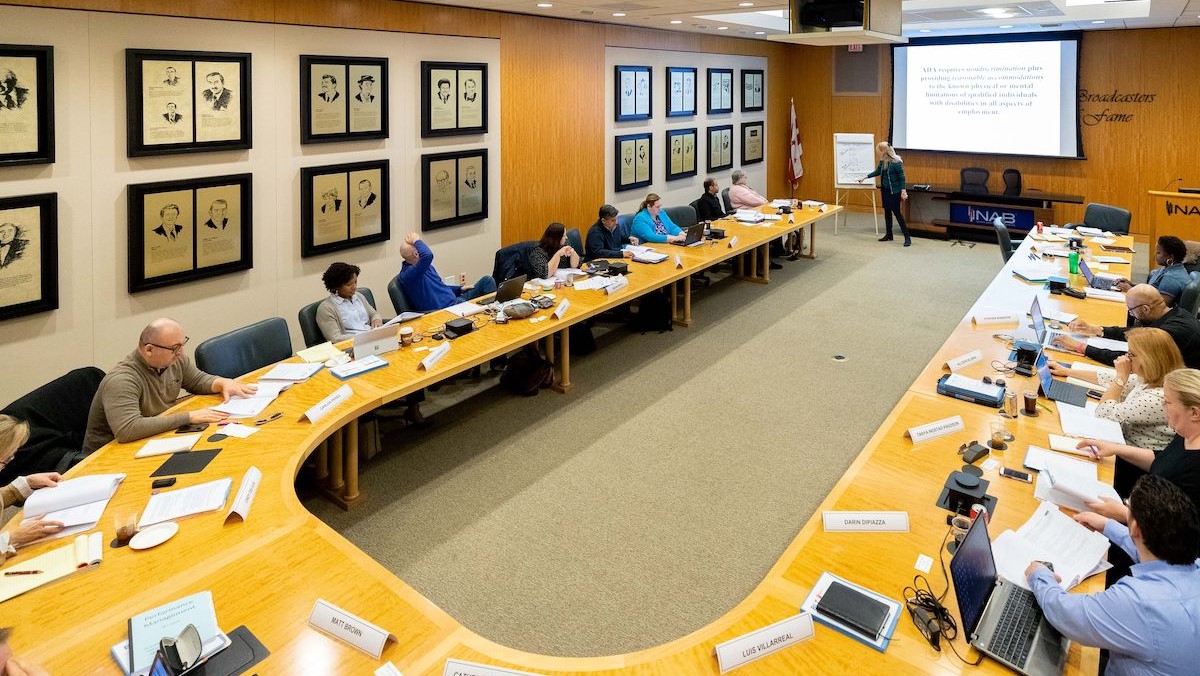Media Execs Urge Reinstatement of Tax Incentives to Promote Diversity in Station Ownership
The dean and associate deans of the Broadcast Leadership Training program have sent a letter to Congressional leaders to express their support for the proposed legislation to reinstate the diversity tax certificate program

WASHINGTON D.C.—Four media executives who serve at the dean and associate deans of the Broadcast Leadership Training program have sent a letter to House Speaker Nancy Pelosi and Senate Majority Leader Chuck Schumer in support of the reinstatement of a tax certificate program to encourage investment in TV and radio broadcast station ownership for women and people of color.
The NAB and other broadcast organizations have already come out in favor of the legislation.
The letter offers support for H.R.4871, the Expanding Broadcast Opportunities Act of 2021 introduced by Reps. G.K. Butterfield (D-NC-1) and Steven Horsford (D-NV-4), and S.2456, the Broadcast VOICES Act introduced by Sens. Gary Peters (D-MI) and Robert Menendez (D-NJ). The bills would authorize the Federal Communications Commission to reestablish a Diversity Tax Certificate Program, which would provide a tax incentive to those who sold their majority interest in a radio or television station to underrepresented broadcasters.
The Broadcast Leadership Training program is an Executive-MBA style program that offers training and education on the fundamentals of purchasing, owning and running a successful broadcast operation to broadcasters who aspire to advance as group executives or station owners, particularly women and people of color.
The BLT is a collaborative effort between the NAB Leadership Foundation and Diane Sutter, president and CEO of ShootingStar Broadcasting.
The NAB and other broadcast organizations have already come out in favor of the legislation.
In the letter, the executives noted that “when the broadcast diversity tax certificate program existed from 1978 to 1995, it demonstrated its success in increasing broadcast ownership among people of color. During the program’s lifespan, broadcast ownership by these groups increased by more than 550 percent. With the elimination of the program in 1995, women and communities of color have been disproportionately impacted. As demonstrated in the Federal Communications Commission (FCC) Fifth Report on Ownership of Broadcast Stations from September 2021, women and people of color lag behind their male and White counterparts in owning a majority interest in commercial broadcast stations. According to the FCC’s September 2021 report on broadcast station ownership, women held a majority ownership interest in only 8% of commercial broadcast stations compared to 65% among men. Among racial minority groups (or people of color), only 4% of commercial broadcast stations held a majority ownership interest by people of color, compared to 76% among white persons.”
Get the TV Tech Newsletter
The professional video industry's #1 source for news, trends and product and tech information. Sign up below.
“As you can see from these data points,” the letter explained, “more needs to be done to level the playing field for underrepresented broadcasters and the Expanding Broadcast Ownership Opportunities Act and the Broadcast VOICES Act, can serve as that catalyst to ensure broadcasters reflect diverse points of view to respond, reflect and serve local communities.”
The letter was signed by Diane Sutter, Dean, BLT Program and president/CEO, ShootingStar Broadcasting; Marc Jaromin, Associate Dean, BLT Program/BLT Graduate and vice president and general manager at the The E.W. Scripps Company; Trila Bumstead Associate Dean, BLT Program/BLT Graduate and owner of the Ohana Media Group, LLC; and Anita S. Graham, Associate Dean, BLT Program and managing director, Graham and Associates.
George Winslow is the senior content producer for TV Tech. He has written about the television, media and technology industries for nearly 30 years for such publications as Broadcasting & Cable, Multichannel News and TV Tech. Over the years, he has edited a number of magazines, including Multichannel News International and World Screen, and moderated panels at such major industry events as NAB and MIP TV. He has published two books and dozens of encyclopedia articles on such subjects as the media, New York City history and economics.

